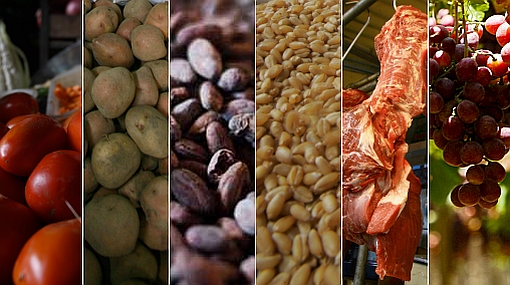2 July 2012, 5.30 pm - 6.30 pm, SOAS, Brunei Gallery Lecture Theatre, Russell Square, London WC1H 0XG
Speaker: Prof. Marion Nestle, Paulette Goddard Professor in the Department of Nutrition, Food Studies, and Public Health and Professor of Sociology at New York University.
Registration
The lecture is part of the workshop 'The Role of Agricultural and Food Systems Research in Combatting Chronic Disease for Development' organised by the Leverhulme Centre for Integrative Research on Agriculture and Health (LCIRAH) and London International Development Centre (LIDC). It can be attended as part of the workshop or separately. The lecture will be followed by a drinks reception.
About the speaker
Marion Nestle is Paulette Goddard Professor in the Department of Nutrition, Food Studies, and Public Health (the department she chaired from 1988-2003) and Professor of Sociology at New York University. Her degrees include a Ph.D. in molecular biology and an M.P.H. in public health nutrition, both from the University of California, Berkeley.
She is the author of Food Politics: How the Food Industry Influences Nutrition and Health (2002, paperback 2003) and Safe Food: The Politics of Food Safety (2003, paperback 2004), both from University of California Press. In 2003, Food Politics won awards from the Association for American Publishers (outstanding title in allied health), James Beard Foundation (literary), and World Hunger Year (Harry Chapin media). Safe Food won the Steinhardt School of Education’s Griffiths Research Award in 2004.
Her book, What to Eat, published by North Point Press/ Farrar, Straus & Giroux (2006, paperback 2007), was named as one of Amazon.Com’s top ten books of 2006 (Health, Mind, and Body) , and a “Must Read” by Eating Well magazine; it won the Better Life Award (Wellness) from the National Multiple Sclerosis Society, and the James Beard Foundation book award for best food reference in 2007. Pet Food Politics: The Chihuahua in the Coal Mine was published by University of California Press in 2008 and in paperback in 2010. Feed Your Pet Right, co-authored with Malden Nesheim also came out in 2010 (Free Press/Simon & Schuster, May 2010). Her most recent book, published in 2012, is also with Malden Nesheim: Why Calories Count: From Science to Politics, also with University of California Press.
She writes a monthly Food Matters column for the San Francisco Chronicle, and blogs daily (almost) atwww.foodpolitics.com and for The Atlantic. She also twitters @marionnestle.
London International Development Centre (LIDC)
36 Gordon Square, London, WC1H 0PD, UK
Tel. 02079588260
36 Gordon Square, London, WC1H 0PD, UK
Tel. 02079588260




















